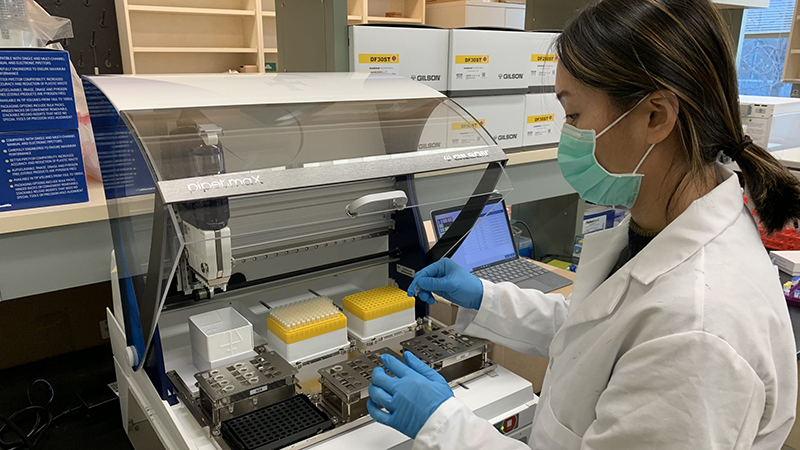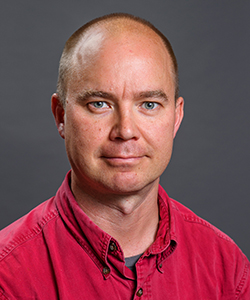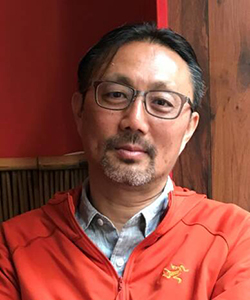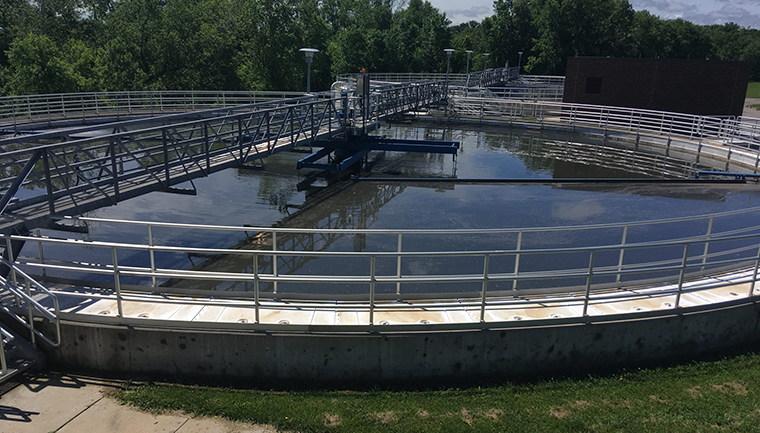
By Eric Stann
Over six months ago, two University of Missouri professors, Marc Johnson, PhD and Chung-Ho Lin, PhD, started detecting remnants of the virus that causes COVID-19 in samples of wastewater collected across Missouri. Now, even with the introduction of the COVID-19 vaccines, they predict they’ll still be searching for SARS-CoV-2 in Missouri wastewater in the years to come.

Johnson is a professor of molecular microbiology and immunology at the School of Medicine and investigator in the Christopher S. Bond Life Sciences Center. Lin is a research associate professor and lead scientist in the bioremediation program at the MU Center for Agroforestry in the College of Agriculture, Food and Natural Resources.

Johnson and Lin had never worked together on a project until a leader from the Missouri Department of Health and Senior Services, or Missouri DHSS, called Johnson early on in the COVID-19 pandemic. The state wanted to see if anyone at MU could help them analyze samples of wastewater from across the state of Missouri for the presence of SARS-CoV-2, or the novel coronavirus, in places where people are connected to a centralized wastewater treatment system.
After he was approached, Johnson sent an email to about 10 other MU scientists in search of collaborators who had the expertise to analyze wastewater samples. The next day, he organized a video conference call with those who responded. Also on that call was Lin, who eagerly offered to dedicate his lab to the research effort. Lin had been analyzing wastewater for a couple of years, but he had never worked with viruses before.
“It was a kind of an interesting adventure, and also challenging,” Lin said.

Since May 2020, Johnson and Lin have provided valuable data for the Coronavirus Sewershed Surveillance Project, a partnership among MU, the Missouri DHSS, and the Missouri Department of Natural Resources. To date, they have tested more than 2,000 samples, and Johnson believes their findings indicate this type of testing can be useful as an early indicator of a rise in the numbers of COVID-19 cases in a community.
“I never in my wildest dreams thought that we could track, with some precision, the number of people infected with a respiratory virus this way,” Johnson said. “It's just crazy.”
Using wastewater for science
About four days a week, the Missouri DHSS sends Johnson between four to 50 boxes of wastewater samples from different wastewater treatment facilities across the state. A team in Johnson’s lab extracts the genetic material, or RNA, of the novel coronavirus from the samples. He then stores the samples at minus 80 degrees Fahrenheit before Lin’s lab can take over the rest of the analysis. Once he receives the samples, Lin runs the RNA through a machine called qPCR, which amplifies the RNA to allow scientists to study it in greater detail.
Johnson begins his days at around 7 a.m., while Lin’s team works during the afternoons and evenings until around 8 or 9 p.m. Once a day’s analysis is complete, they submit a report to the Missouri DHSS so that local public health departments from across the state can be notified of the results.
Lin said perhaps the most convenient perk of their partnership is that Johnson likes to start working early in the morning, while he likes to work late into the night. That way, Lin said they are always working around the clock. “This is a dream for every scientist,” Lin said. “By the time I wake up in the morning, somebody is going to benefit from the analysis we ran the night before. This gives me a very rewarding experience, to be able to directly benefit the people and let the general public appreciate science and higher education.”
Even with the recent introduction of the COVID-19 vaccines, the data Johnson and Lin collect will help local health departments keep an eye on possible spread of the virus, especially since fewer people are likely to get tested once they receive the vaccine. The wastewater also will be helpful in determining when a community is entirely clear of the virus.
“Peace of mind is priceless, especially after the pandemic is over,” Lin said. “Everyone will still be curious about whether the virus is still out there, circling around, and this testing will help put those fears to rest.”
This story originally appeared in Show Me Mizzou on January 5, 2021.





